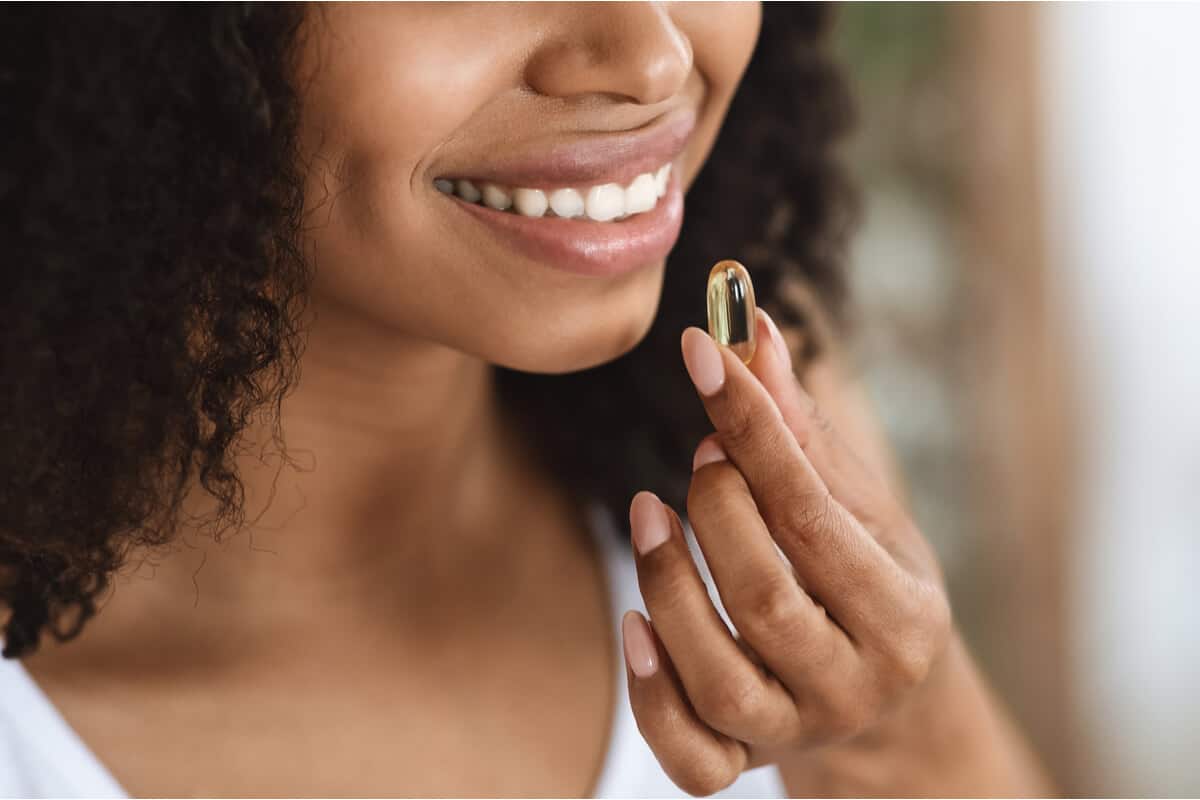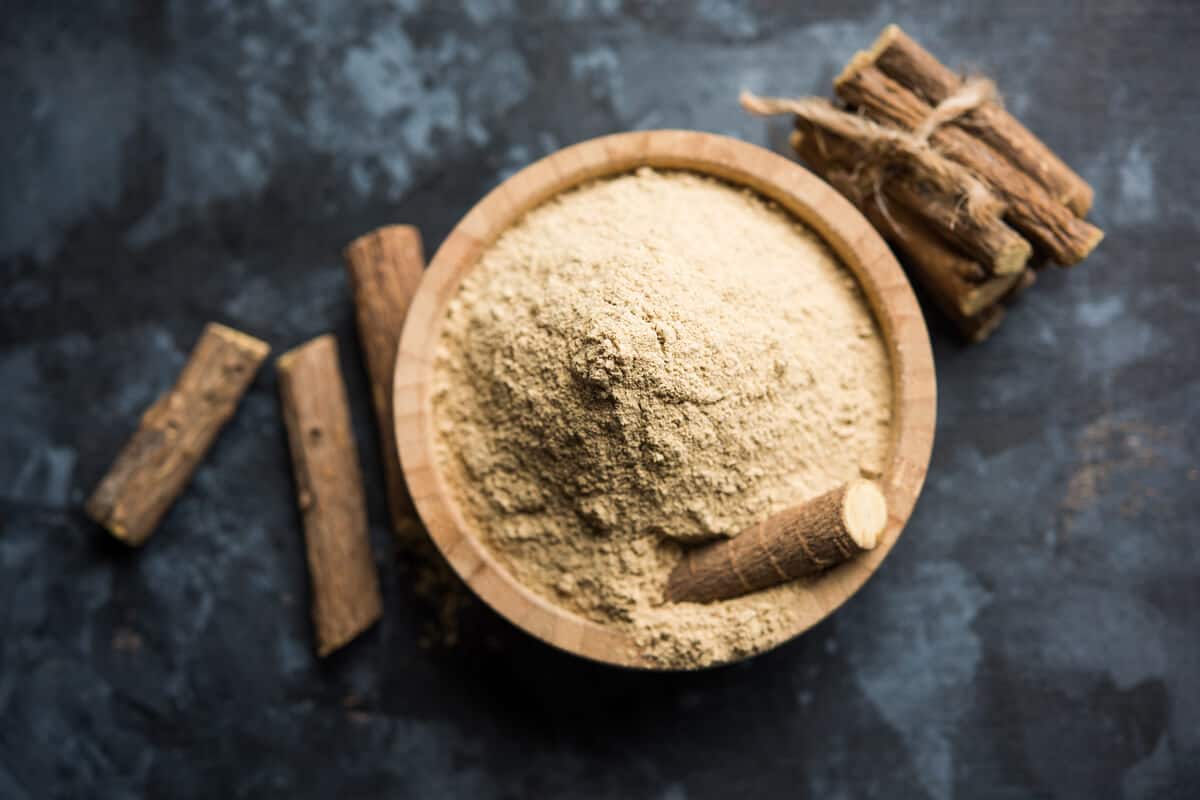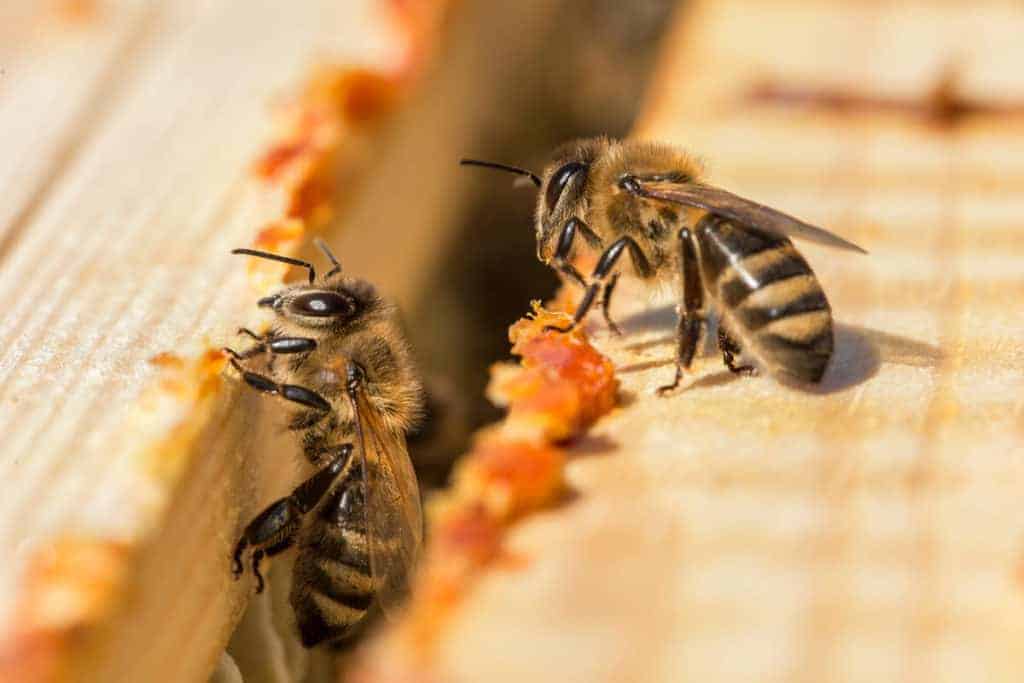The immune system plays a vital role in your quality of life. More than ever, supporting our immune health may be top of mind. (13) Many factors contribute to the strength of our immune system, from the foods we eat to the amount of rest we get. Supplements can also be a great addition to your daily routine as a way to safeguard your immune system in times of stress. Many of us are familiar with immune-boosting nutrients like vitamin C, vitamin D, zinc, and probiotics, but what are some other less-known immune health supplements you can add into your daily routine that can help support and protect your immune system? Continue reading to discover five lesser-known immune health supplements.

Immune health supplements play a vital role in protecting us against viral and bacterial infection. (13)
5 immune health supplements
1. Astragalus
Astragalus membranaceus is a medicinal herb commonly used in Traditional Chinese Medicine (TCM) to address various conditions from respiratory infections to chronic fatigue syndrome. (6)(15) In China, the dried root has been used for thousands of years as a remedy for certain health challenges such as acute respiratory infections, the common cold, diarrhea, and fatigue. (6)(24)In the Western world, astragalus has also been studied for its anti-inflammatory, antioxidative, and immunostimulant properties, proving its relevance in modern-day medicine, specifically in supporting the immune system. (6)(12) Astragaus has been studied specifically for its effect on patients with chronic viral hepatitis B. In one particular study, 65.5% of patients with chronic viral hepatitis experienced a complete resolution of their clinical symptoms (e.g., fatigue, anorexia, abdominal distension, and jaundice) and a full recovery of liver function after supplementing for 2 months with an astragalus compound (the compound contained additional herbs). This study suggests that astragalus supplementation could be used as a complementary therapy for chronic viral hepatitis B. (25) Astragalus root is commonly found in the form of capsules or tinctures (liquid form), making it accessible to add to your supplement routine.
2. Glutamine
As one of the most abundant amino acids in the human body, it’s no surprise that glutamine can play an essential role in immunity. Immune cells love glutamine, as they often consume greater levels of glutamine compared to glucose for fuel. (2) Both in vitro and in vivo studies have found that glutamine helps immune cells function optimally by supporting lymphocyte proliferation, cytokine production, and neutrophil bacterial killing. (2) A promising study done on patients undergoing abdominal operations demonstrated that glutamine supplementation can significantly decrease the risk of infection complications, resulting in shorter hospital stays. (4)Although glutamine is produced by the body, deficiencies can occur during times of physical and emotional stress due to the increased demands of the body. (8)(10)(11) Glutamine supplements are often found in the form of L-glutamine as a powder, making this immune system booster easy to add to smoothies and hot beverages.

Licorice root has around 300 active medicinal compounds, many of which have been shown to have potent immuno-supportive properties. (3)
3. Licorice
Known as “the father of herbal medicine,” Glycyrrhiza glabra (licorice) has been used in ancient medicine in both Eastern and Western cultures for thousands of years. Containing approximately 300 active medicinal compounds, licorice has been shown to have potent immune supportive properties. (3)Along with ancient anecdotal wisdom, the antiviral properties of active components known as triterpenoids have been studied as broad-spectrum antiviral remedies for immunocompromised conditions such as herpes virus, human immunodeficiency virus (HIV), and the influenza virus. (18) Water extracts of the herb have also been shown to have antiviral properties against the human respiratory syncytial virus (HRSV) specifically in the cells that line the human respiratory tract, suggesting that this immune booster could be protective against upper respiratory infections. (5) Licorice can be found in the form of tea, dietary supplements, and even lozenges. However, lozenge can contain added sugar and high fructose corn syrup. (3) Licorice may be contraindicated for individuals with hypertension (high blood pressure). If you’re a patient, speak to your practitioner before taking licorice. (17)

The bioactive compounds, known as flavonoids, found in propolis have been shown to inhibit viral cell interaction and viral cell replication. (1)
4. Propolis
In addition to producing honey, bees also produce propolis, a resinous compound rich in anti-microbial, antiviral, and immunomodulatory compounds. (1)(21) Propolis has been used for thousands of years in ancient Greece and Egypt for its medicinal properties. (7) The bioactive compounds found in propolis, known as flavonoids, have been shown to inhibit viral cell interaction and viral cell replication. (1)Propolis’ antimicrobial, anti-fungal, and anti-inflammatory activities protect against infection and support cellular regeneration such as in wound healing. (16) Propolis is becoming a mainstay for immune health and is commonly found in superfood honey blends, capsules, and throat sprays.
5. Selenium
Selenium is an essential trace mineral and another effective immune booster that can help support optimal immune function. (20) Research demonstrates a link between micronutrient and macronutrient deficiencies and increased risk of both bacterial and viral infections. Selenium has been found to affect cellular immune function for viral and bacterial infections. (23) Since selenium status may increase cellular function of both innate and adaptive immunity, supplementation and dietary intake of selenium has been recommended as an immune support for patients with viral infections such as the influenza A virus. (14)(23)At a cellular level, selenium plays an important role in the regulation of reactive oxygen species (ROS), which is important for keeping inflammation at bay and the immune system healthy. (9) Since ROS are created during mitochondrial metabolism and as a cellular response to viral and bacterial invasions, selenium can also play an important role in the healing process by lowering ROS. (19)
Supplementation can be helpful in addition to selenium-rich foods in the diet. If you’re looking for a food-based approach for increasing your selenium intake, brazil nuts are the highest source of selenium. Just a couple a day can supply you with enough selenium to exceed the recommended dietary allowance (RDA). (22)
The bottom line
Supporting a healthy immune response is so important for the prevention of both viral and bacterial infections. Along with reducing stress and getting adequate sleep, certain supplements, such as astragalus, glutamine, licorice, propolis, and selenium, can be effective immune health supplements to add to your routine. Always speak to your integrative health care provider before adding new immune health supplements to your wellness plan.- Ali, A. M., & Kunugi, H. (2021). Propolis, bee honey, and their components protect against coronavirus disease 2019 (COVID-19): A review of in silico, in vitro, and clinical studies. Molecules, 26(5), 1232.
- Cruzat, V., Macedo Rogero, M., Noel Keane, K., Curi, R., & Newsholme, P. (2018). Glutamine: Metabolism and immune function, supplementation and clinical translation. Nutrients, 10(11), 1564.
- Deutch, M. R., Grimm, D., Wehland, M., Infanger, M., & Krüger, M. (2019). Bioactive candy: Effects of licorice on the cardiovascular system. Foods, 8(10), 495.
- Fan, Y. P., Yu, J. C., Kang, W. M., & Zhang, Q. (2009). Effects of glutamine supplementation on patients undergoing abdominal surgery. Chinese Medical Sciences Journal, 24(1), 55–59.
- Feng Yeh, C., Chih Wang, K., Chai Chiang, L., Shieh, D. E., Hong Yen, M., & San Chang, J. (2013). Water extract of licorice had anti-viral activity against human respiratory syncytial virus in human respiratory tract cell lines. Journal of Ethnopharmacology, 148(2), 466–473.
- Fu, J., Wang, Z., Huang, L., Zheng, S., Wang, D., Chen, S., Zhang, H., & Yang, S. (2014). Review of the botanical characteristics, phytochemistry, and pharmacology of astragalus membranaceus (Huangqi). Phytotherapy Research, 28(9), 1275–1283.
- Ghisalberti, E. L. (1979). Propolis: A review. Bee World, 60(2), 59–84.
- Hall, J. C., Heel, K., & McCauley, R. (1996). Glutamine. British Journal of Surgery, 83(3), 305–312.
- Hoffmann, P. R., & Berry, M. J. (2008). The influence of selenium on immune responses. Molecular Nutrition & Food Research, 52(11), 1273–1280.
- Kim, H. (2011). Glutamine as an immunonutrient. Yonsei Medical Journal, 52(6), 892.
- Lacey, J. M., & Wilmore, D. W. (2009). Is glutamine a conditionally essential amino acid? Nutrition Reviews, 48(8), 297–309.
- Li, X., Qu, L., Dong, Y., Han, L., Liu, E., Fang, S., Zhang, Y., & Wang, T. (2014). A review of recent research progress on the astragalus genus. Molecules, 19(11), 18850–18880.
- Li, Z. X., Zhao, G. D., Xiong, W., Linghu, K. G., Ma, Q. S., Cheang, W. S., Yu, H., & Wang, Y. (2019). Immunomodulatory effects of a new whole ingredients extract from astragalus: A combined evaluation on chemistry and pharmacology. Chinese Medicine, 14(1), 12.
- Lin, Z., Li, Y., Gong, G., Xia, Y., Wang, C., & Chen, Y. (2018). Restriction of H1N1 influenza virus infection by selenium nanoparticles loaded with ribavirin via resisting caspase-3 apoptotic pathway. International Journal of Nanomedicine, 13, 5787–5797.
- Liu, P., Zhao, H., & Luo, Y. (2017). Anti-Aging implications of astragalus membranaceus (huangqi): A Well-Known Chinese tonic. Aging and Disease, 8(6), 868.
- Martinotti, S., & Ranzato, E. (2015). Propolis: A new frontier for wound healing? Burns & Trauma, 3.
- Penninkilampi, R., Eslick, E. M., & Eslick, G. D. (2017). The association between consistent licorice ingestion, hypertension and hypokalaemia: A systematic review and meta-analysis. Journal of Human Hypertension, 31(11), 699–707.
- Pu, J. Y., He, L., Wu, S. Y., Zhang, P., & Huang, X. (2013). Bing du xue bao = Chinese journal of virology, 29(6), 673–679.
- Ray, P. D., Huang, B. W., & Tsuji, Y. (2012). Reactive oxygen species (ROS) homeostasis and redox regulation in cellular signaling. Cellular Signalling, 24(5), 981–990.
- Rayman, M. P. (2000). The importance of selenium to human health. The Lancet, 356(9225), 233–241.
- Rivera-Yañez, N., Rivera-Yañez, C. R., Pozo-Molina, G., Méndez-Catalá, C. F., Reyes-Reali, J., Mendoza-Ramos, M. I., Méndez-Cruz, A. R., & Nieto-Yañez, O. (2021). Effects of propolis on infectious diseases of medical relevance. Biology, 10(5), 428.
- Silva Junior, E., Wadt, L., Silva, K., Lima, R., Batista, K., & Guedes, M. (2017). Natural variation of selenium in Brazil nuts and soils from the Amazon region. Chemosphere, 188, 650–658.
- Steinbrenner, H., Al-Quraishy, S., Dkhil, M. A., Wunderlich, F., & Sies, H. (2015). Dietary selenium in adjuvant therapy of viral and bacterial infections. Advances in Nutrition, 6(1), 73–82.
- Su, G., Chen, X., Liu, Z., Yang, L., Zhang, L., Stålsby Lundborg, C., Wen, Z., Guo, X., Qin, X., Liang, J., & Liu, X. (2016). Oral astragalus(Huang qi) for preventing frequent episodes of acute respiratory tract infection in children. Cochrane Database of Systematic Reviews, 2016(12), CD011958.
- Tang, L., Sheng, J., Xu, C., & Liu, K. (2009). Clinical and experimental effectiveness of astragali compound in the treatment of chronic viral hepatitis B. Journal of International Medical Research, 37(3), 662–667.





